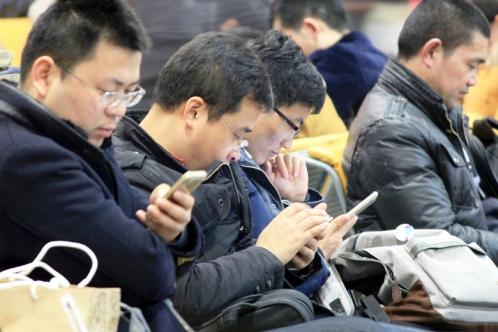
Smartphones drive long hours culture
Smartphones and tablets encourage a culture of long working hours, a study has found. The report, by the Law Society of Scotland, says that digital technology was leading to excessive workloads rather than providing more flexibility.
Although the study looked at the impact of smartphone technology on the legal profession, other professional bodies said it was having a similar effect on their members.
The report said that while it had been hoped that the introduction of smartphones and tablets would allow staff to spend more time at home, the reality was that a “culture of extensive overtime” had become endemic.
Neil Stevenson, director of representation and support at the Law Society, said that the body had “wanted to test whether technology was helping create a more level playing field for those working flexibly or on reduced hours, or whether it was helping the ‘alphas’ in the profession, whether male or female, to work even longer hours.”
The report found that smartphones with “push technology” — when phones alert owners of an email or news bulletin from an app — were “seen as a significant driver of additional hours and a reduction in an acceptable work-life balance”.
“Solicitors reported persistently receiving emails out of office hours, along with an expectation, by clients and their firm or organisation, that they will respond instantly,” the report stated. “Feelings of being permanently tied to the office were commonplace.”
Atholl Duncan, executive director of the Institute of Chartered Accountants of Scotland (Icas), said companies “must listen to the concerns of their employees”. He said the report was relevant to accountancy, arguing that the long-hours culture came from the top. “If the chief executive is emailing you at 6.07am then people will follow that example,” he said.
The First Division Association (FDA),which represents senior civil servants, said that connectivity via smartphones was pushing employees to higher levels of “stress, anxiety and mental health problems”. Jim Caldwell, the organisation’s Scottish secretary, said senior civil servants were increasingly working “additional hours” while not being paid overtime.
Robert Paton, a professor of management at the University of Glasgow, said that some companies had introduced rules on how staff were contacted outside office hours. Volkswagen agreed not to send emails to employees off-shift, while Daimler has a system that automatically deleted messages if staff were away. “What is needed is for companies to look at their communication strategy and work out a cultural shift away from private lives being encroached on by technology,” he said.
